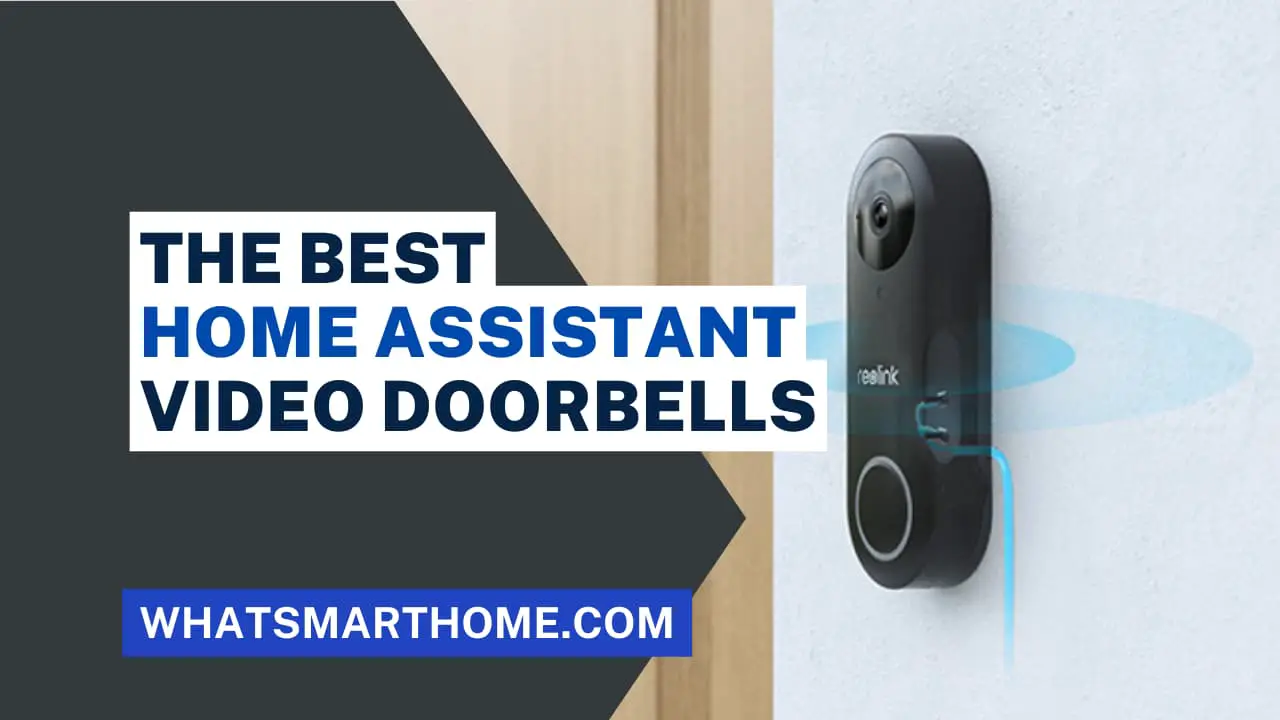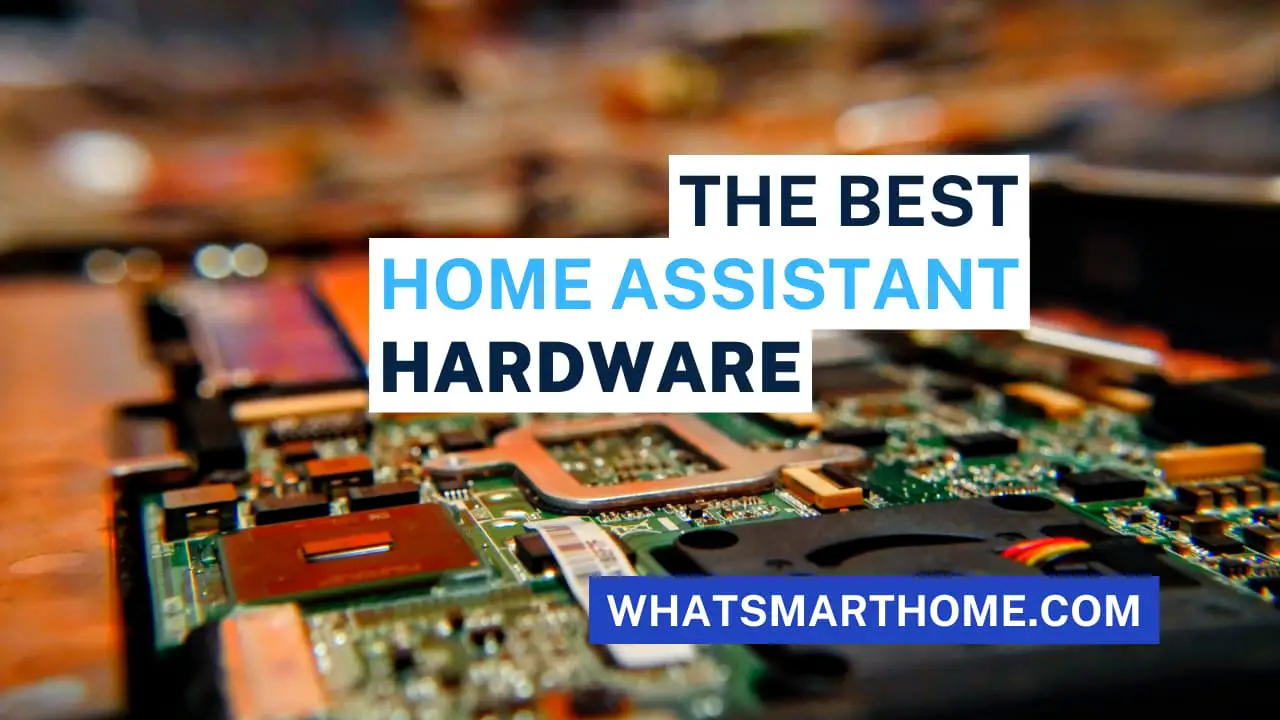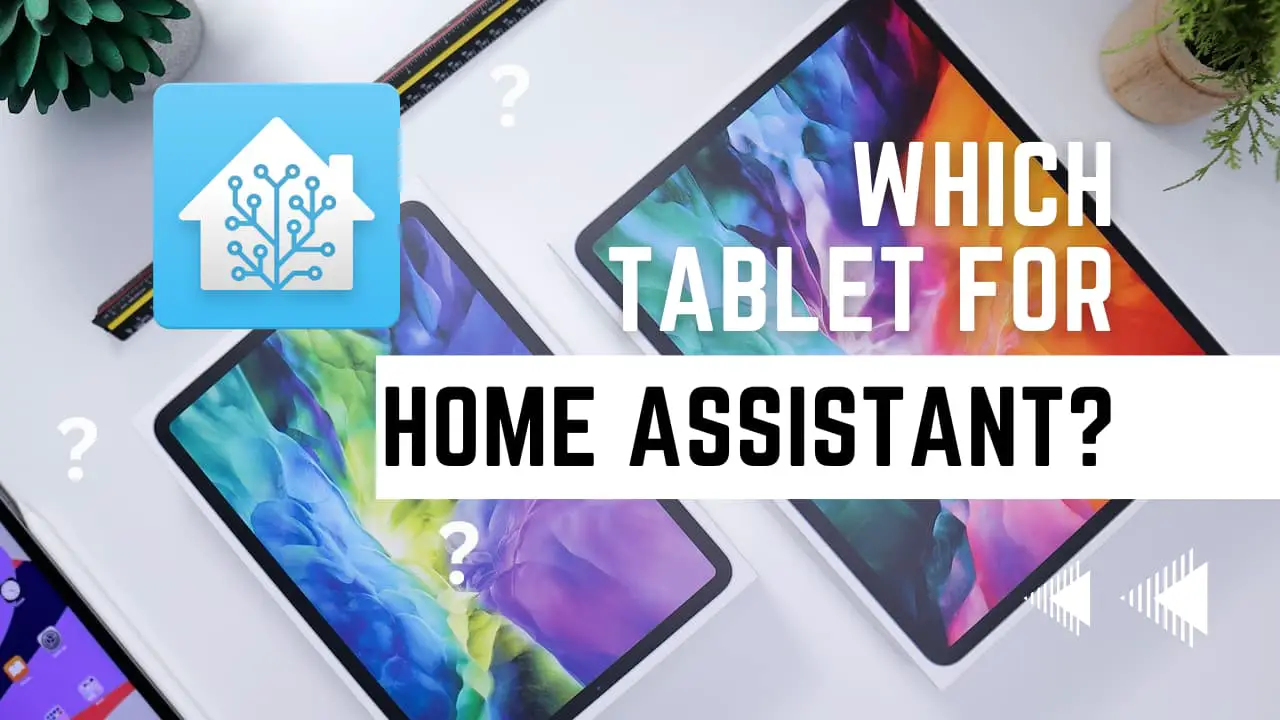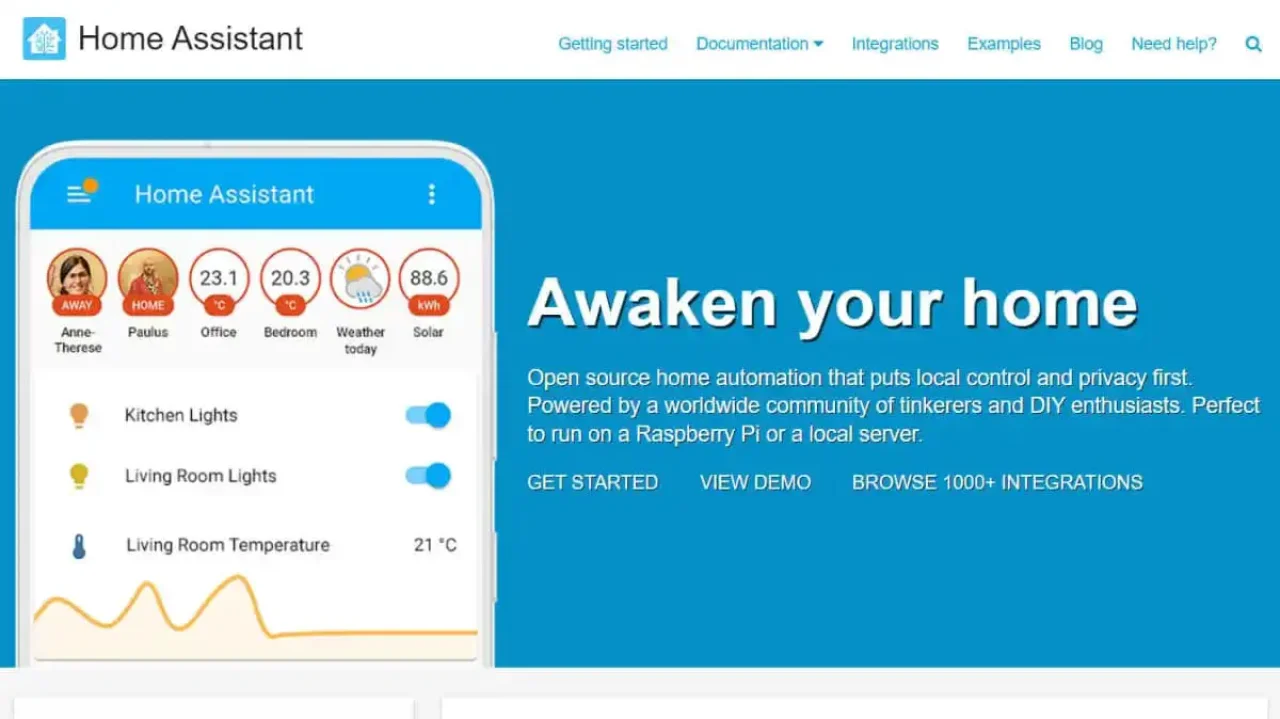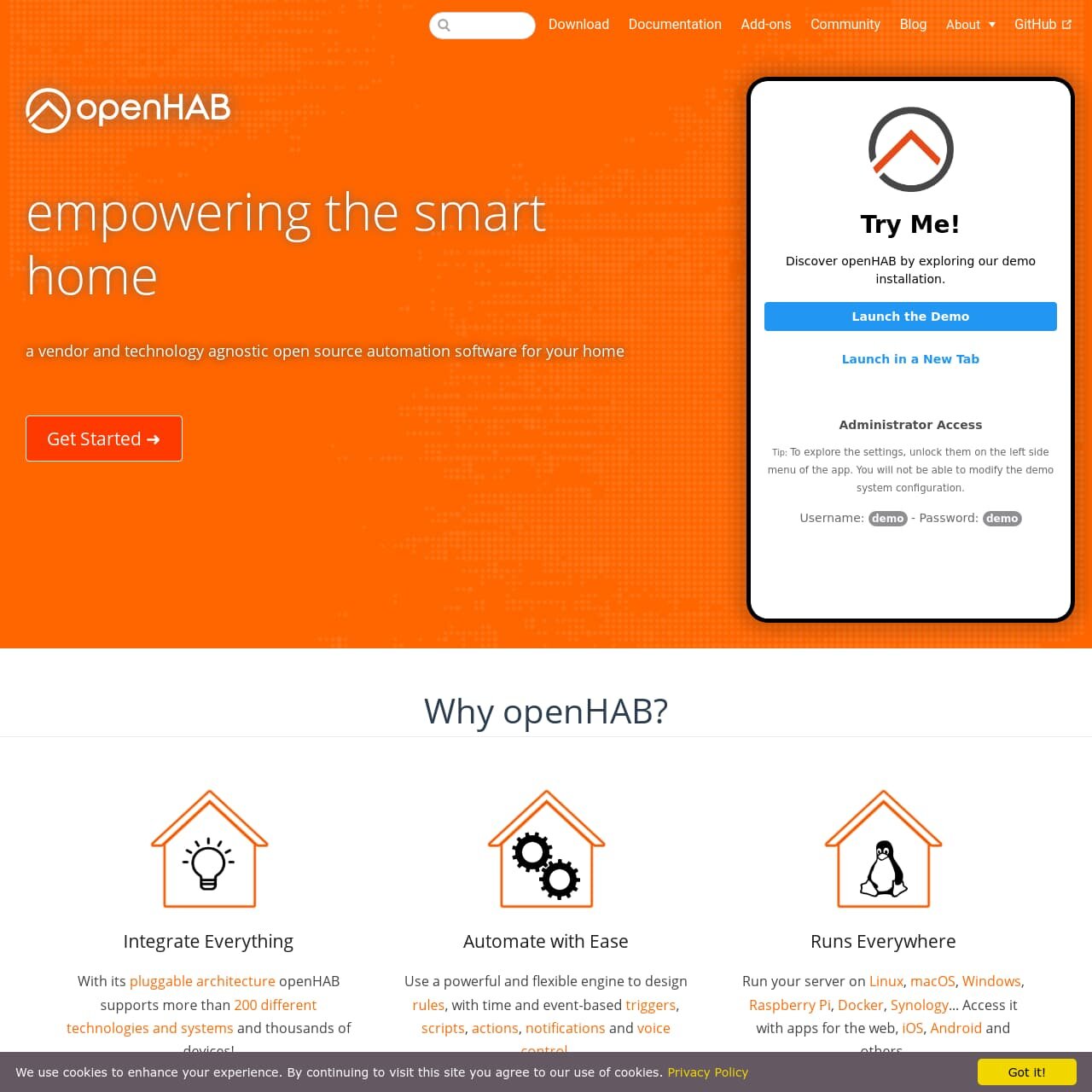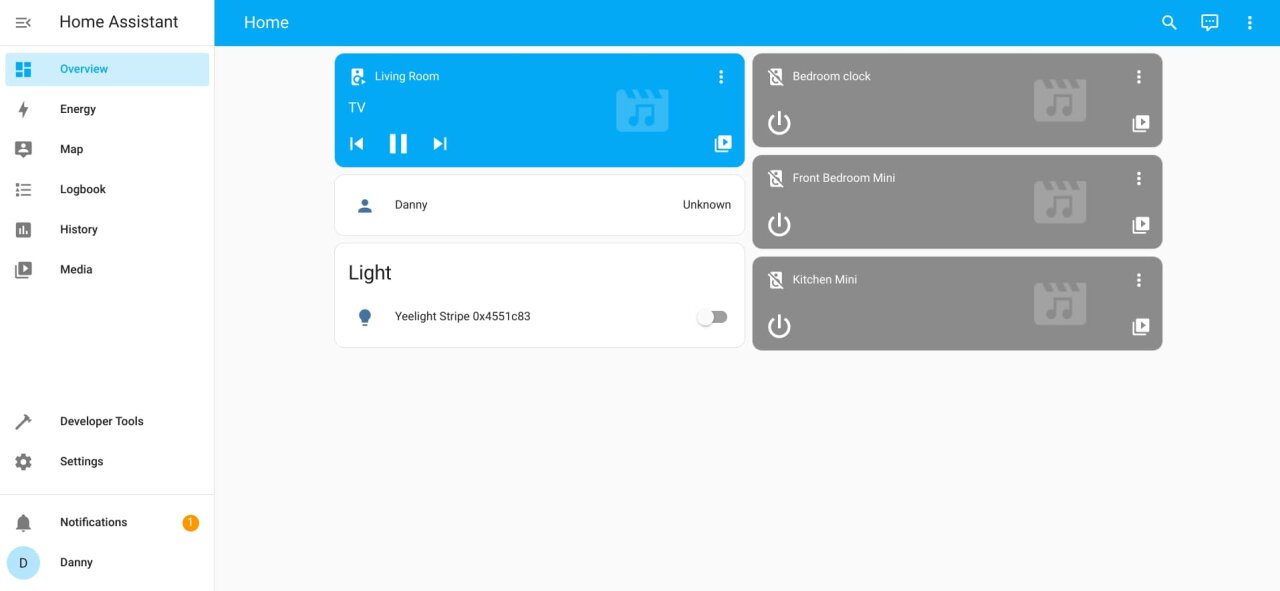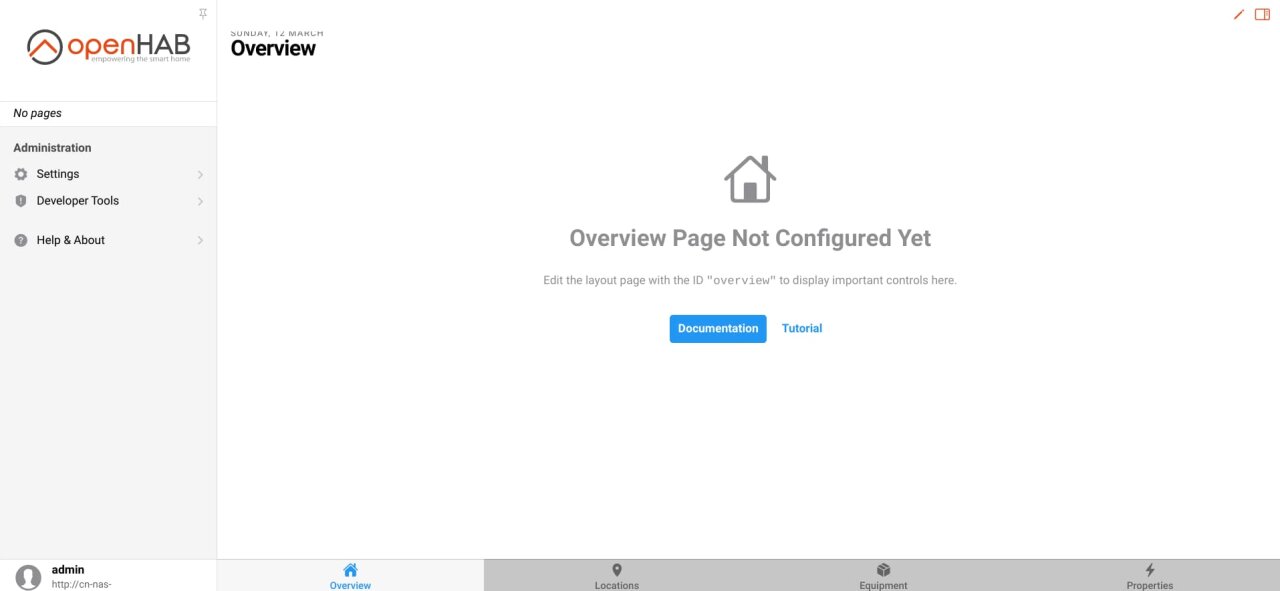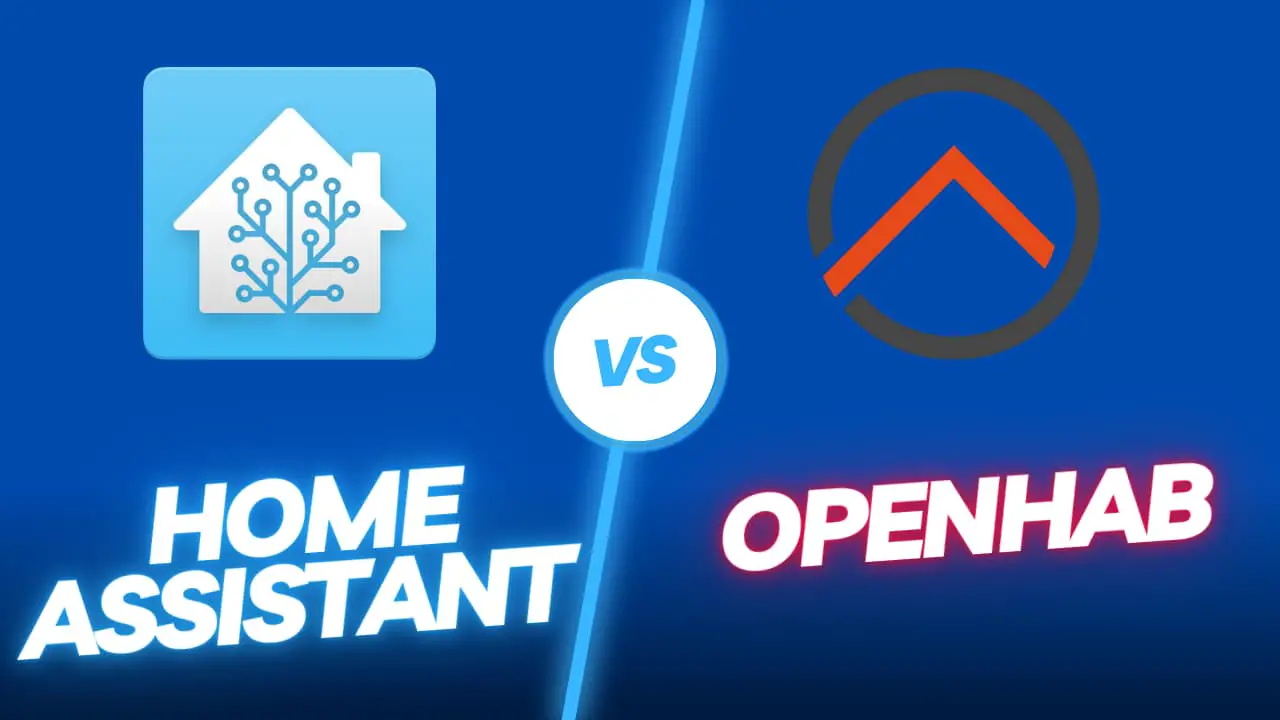
Home automation is a rapidly growing field that allows users to control and automate various aspects of their homes using smart devices and software. There are many different platforms available, but two of the most popular options are Home Assistant and openHAB.
Let's look at Home Assistant vs OpenHAB to see the main differences and which platform would best suit your home.
Both platforms offer a wide range of features and allow users to control a variety of smart devices, but they differ in terms of ease of use, compatibility, and community support.
In this blog post, I will compare Home Assistant and openHAB and discuss which platform is easier to use for beginners.
Overview of Home Assistant
Home Assistant is an open-source home automation platform that is designed to be easily installed and configured on a variety of devices, including Raspberry Pi, and it is written in Python. Its main features include:
Support for over 1,500 different devices and services
An intuitive and customizable user interface
Automation capabilities using a powerful rule engine
Support for popular protocols like Thread, Zigbee, Z-Wave, and Bluetooth
Easy integration with other platforms and services using a variety of add-ons and integrations
A large and active community of users who share customizations and provide support.
Check out our recent post where we take a more in-depth look at how good Home Assistant is.
Overview of openHAB
openHAB is also an open-source home automation platform that is designed to be highly flexible and extensible. Its main features include:
Support for over 500 different devices and services
A customizable user interface based on the Eclipse SmartHome framework
Automation capabilities using a powerful rule engine
Support for popular protocols like Thread, Zigbee, Z-Wave, and Bluetooth
A large library of add-ons and bindings for integrating with other platforms and services
A large and active community of users who share customizations and provide support.
Both Home Assistant and openHAB are powerful and flexible home automation platforms that offer a wide range of features and support for many different devices and services.
Both platforms also have a strong community of users who provide support and share customizations.
However, Home Assistant is more beginner-friendly in terms of ease of use and installation, whereas openHAB is more flexible and extensible.
Comparing The User Interfaces
Home Assistant and openHAB both offer customizable user interfaces, but they differ in terms of their design and ease of use.
Home Assistant's user interface is built using a modern web-based design, which is intuitive and user-friendly. The interface is divided into different sections, such as devices, scenes, and automations, which makes it easy to navigate and find the information you need.
The interface also provides detailed information about the devices and services connected to the system, and it has a built-in editor for creating automations and scripts. The interface is also highly customizable, allowing users to personalize their home screen, add new widgets and panels, and change the theme.
OpenHAB's user interface is based on the Eclipse SmartHome framework, which is a bit more complex and less intuitive than Home Assistant's interface. The interface is divided into different sections, such as Things, Items, and Rules, which can take some time to understand.
The OpenHAB interface is not as customizable as Home Assistant, and it may require some technical knowledge to personalize. However, openHAB provides a powerful and flexible rule engine that allows users to create complex automations and scripts using a variety of bindings and actions.
Mobile Apps
Both Home Assistant and OpenHAB offer official mobile apps for Android and iOS users.
The apps provide convenient access to your home's controls from your pocket and if you have remote access enabled the apps can become even more useful.
The apps on both platforms provide additional sensors such as presence detection, battery levels and geolocation.
The best feature of both apps is the ability to receive push notifications from your automations.
Comparing The Setup Process
The setup process for Home Assistant and openHAB can vary depending on the device and operating system you are using, but in general, both platforms are relatively easy to install and configure.
Home Assistant can be installed on a variety of devices, including Raspberry Pi, and it has an easy-to-use installation script that guides you through the process.
The installation process involves downloading the image file and writing it to an SD card, then booting up the device and configuring the network settings. Once the installation is complete, you can access the user interface by typing the device's IP address into a web browser. Home Assistant also has a built-in configuration wizard that helps you set up the basic settings, such as adding devices and creating automations.
OpenHAB also has an easy installation process and it supports multiple operating systems such as Windows, Linux, and Mac.
The installation process involves downloading the installer and running it on your device. Once the installation is complete, you can access the user interface by typing the device's IP address into a web browser. openHAB also has a built-in configuration wizard that helps you set up the basic settings, such as adding devices and creating automations.
Both Home Assistant and openHAB are relatively easy to install and configure. Home Assistant has an easy-to-use installation script and a built-in configuration wizard that guides you through the process, while openHAB also has a straightforward installation process and a built-in configuration wizard.
Documentation and Communities
Both Home Assistant and openHAB have a wealth of additional resources available for beginners and advanced users.
Home Assistant has a large and active community of users who share customizations and provide support through various forums and social media platforms.
The Home Assistant website also has a comprehensive documentation section that covers a wide range of topics, from installation and setup to advanced automation and scripting. The documentation is well-organized and easy to navigate, making it a valuable resource for beginners. Additionally, Home Assistant has a dedicated YouTube channel with a variety of tutorials and guides for getting started and advanced features.
Similarly, openHAB also has a large and active community of users who share customizations and provide support through various forums and social media platforms.
The openHAB website has a documentation section that covers a wide range of topics, from installation and setup to advanced automation and scripting. The documentation is well-organized and easy to navigate, making it a valuable resource for beginners.
Additionally, openHAB also has a dedicated YouTube channel with a variety of tutorials and guides for getting started and advanced features.
Compatibility Differences
Both Home Assistant and openHAB are compatible with a wide range of smart devices and protocols, including Thread, Zigbee, Z-Wave, and Bluetooth. However, the level of compatibility and flexibility can vary depending on the device and the platform.
Home Assistant has a large library of official and community-contributed integrations for various devices and services, which makes it easy to connect and control smart devices using the platform. It has a wide range of add-ons and integrations for other platforms and services. In addition, it also allows users to create their own integrations using a powerful and flexible API, which provides a high level of flexibility and compatibility.
Similarly, openHAB also has a large library of official and community-contributed integrations for various devices and services, which makes it easy to connect and control smart devices using the platform. It also has a wide range of add-ons and bindings for other platforms and services. However, unlike Home Assistant, it doesn't have a built-in API. Instead, it uses the Eclipse SmartHome framework, which is a bit more complex and less intuitive for beginners but provides a high level of flexibility and compatibility for advanced users.
Both Home Assistant and openHAB are compatible with a wide range of smart devices and protocols.
However, Home Assistant offers more flexibility and compatibility for beginners due to its built-in API and intuitive user interface, whereas openHAB is more flexible for advanced users with its powerful Eclipse SmartHome framework.
Limitations and Compatibility Issues
While both Home Assistant and openHAB are powerful and flexible home automation platforms, they do have some limitations and compatibility issues that users may encounter.
One limitation of Home Assistant is that it requires a certain level of technical knowledge to set up and configure, especially for advanced features like custom integrations and scripts. Additionally, some users may encounter compatibility issues with certain devices or services that are not officially supported by the platform.
Similarly, openHAB also requires a certain level of technical knowledge to set up and configure, especially for advanced features like custom automations and scripts. Additionally, some users may encounter compatibility issues with certain devices or services that are not officially supported by the platform. Furthermore, openHAB's Eclipse SmartHome framework may be less intuitive for beginners and may take some time to understand.
Another limitation of both platforms is that users may have to rely on third-party integrations and add-ons to connect certain devices, which may not be stable or reliable. Additionally, some users may experience issues with the stability and performance of the platform, especially if they are using older or underpowered hardware.
Users should keep in mind that both platforms are open-source, which means that they are constantly evolving and improving, so it's worth checking for updates and new features regularly.
Community and Support
Both Home Assistant and openHAB have large and active communities of users who share customizations, provide support, and contribute to the development of the platform.
Home Assistant | OpenHAB | |
|---|---|---|
Posts | 2.3m | 815k |
Topics | 187k | 64k |
Users | 172k | 43k |
Community sizes compared 12th March 2023
Home Assistant's community is one of the largest and most active in the home automation field, with a large number of users sharing customizations, integrations, and scripts through various forums and social media platforms. Additionally, there are a large number of tutorials, guides, and videos available on the official website and YouTube channel. The community is also very supportive and helpful, and it's easy to find help and troubleshoot issues by searching online or asking questions on the forums.
Similarly, openHAB also has a large and active community of users who share customizations, provide support, and contribute to the development of the platform. The community is spread across various forums and social media platforms, and it's easy to find help and troubleshoot issues by searching online or asking questions on the forums. Additionally, the official website and YouTube channel also have a variety of tutorials, guides, and videos available.
Official Support
Both Home Assistant and openHAB offer official support through their respective websites, documentation, and forums.
Home Assistant's official support includes a comprehensive documentation section that covers a wide range of topics, from installation and setup to advanced automation and scripting. Additionally, the Home Assistant website has a forum where users can ask and answer questions and share customizations. The community is very active and supportive, and it's easy to find help and troubleshoot issues by searching online or asking questions on the forums.
Similarly, openHAB's official support includes a comprehensive documentation section that covers a wide range of topics, from installation and setup to advanced automation and scripting. Additionally, the openHAB website has a forum where users can ask and answer questions and share customizations. The community is also active and supportive, and it's easy to find help and troubleshoot issues by searching online or asking questions on the forums.
Both platforms also have third-party support available through a variety of channels. For example, Homeassistant has a dedicated YouTube channel with a variety of tutorials and guides for getting started and advanced features, and openHAB also has a dedicated YouTube channel with a variety of tutorials and guides for getting started and advanced features. Additionally, both platforms have a large and active community of users who share customizations and provide support through various forums and social media platforms.
Home Assistant and openHAB Compared
Home Assistant | openHAB | |
|---|---|---|
Supported Devices | Raspberry Pi | Linux |
Open Source | Yes - Source Code on GitHub | Yes - Source code on GitHub |
Language | Python | Java |
Mobile Apps | Android and iOS | Android and iOS |
Local Control | Yes | Yes |
Cloud Support | Yes | Yes |
Integrations | 2400+ | 2000+ |
Home Assistant compared to openHAB
Is Home Assistant better than OpenHab?
In this blog post, we have compared the two popular home automation platforms, Home Assistant and OpenHAB. Both platforms offer a wide range of features and allow users to control a variety of smart devices, but they differ in terms of ease of use, compatibility, and community support.
Home Assistant is best for beginners, the user interface is more intuitive and user-friendly than OpenHAB. It is designed to be easy to navigate and understand.
Both platforms are compatible with a wide range of smart devices and protocols. However, Home Assistant offers more flexibility and compatibility for beginners due to its built-in API and intuitive user interface, whereas OpenHAB is more flexible for advanced users with its powerful Eclipse SmartHome framework.
If you currently use OpenHAB or Home Assistant I encourage you to try out both platforms and come to your own conclusions on which platform y



